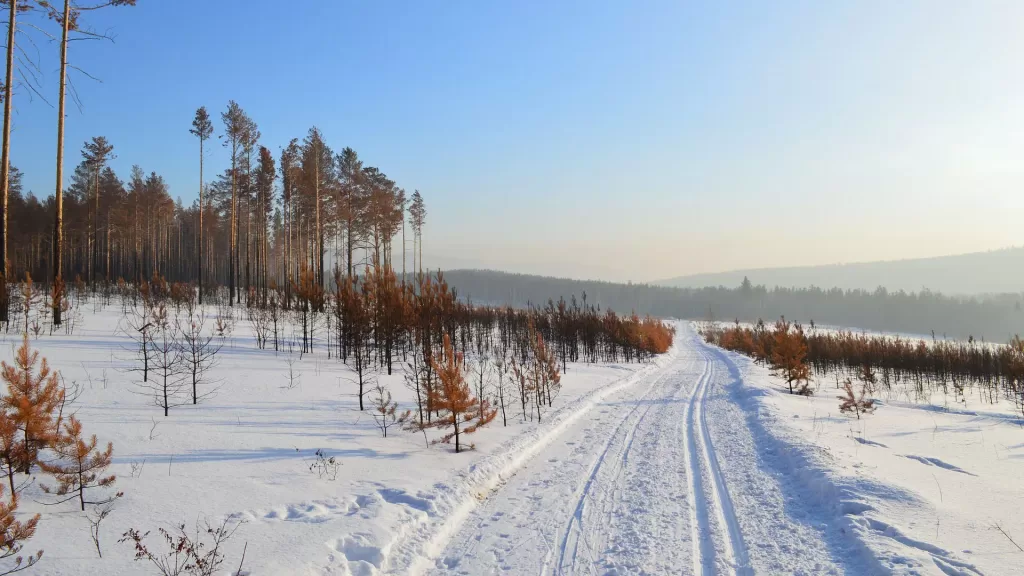Russia Country Report

Russia, the largest country in the world by land area, spans Eastern Europe and Northern Asia, with a diverse landscape encompassing forests, mountains, and tundra. With a population of over 144 million people, Russia holds significant geopolitical influence, being a major player in international politics, economics, and culture. Historically, Russia has been known for its rich cultural heritage, literature, music, and art, as well as its contributions to science and technology. The country has undergone significant political and social transformations, from the era of the Tsars to the Soviet Union, and later to the post-Soviet period under President Vladimir Putin’s leadership. Modern Russia faces various challenges, including political tensions with Western nations, economic diversification, and social issues such as income inequality and demographic changes. Despite these challenges, Russia remains a key global power, with a strong military, vast natural resources, and a rich cultural legacy that continues to shape its identity on the world stage.
Last updated: September 5, 2023
Security
Security is a significant aspect of Russia’s governance and geopolitical posture. The country maintains a formidable military force, including a nuclear arsenal, which is one of the largest in the world. Russia’s security concerns stem from historical rivalries, regional conflicts, and perceived threats from NATO expansion and Western influence. Domestically, Russia faces challenges such as terrorism, organized crime, and separatist movements, particularly in regions like the North Caucasus. The government, under President Vladimir Putin, has pursued assertive foreign policies, including military interventions in neighboring countries like Ukraine and Georgia, as well as involvement in conflicts in Syria and the Middle East. Russia also plays a crucial role in global security dynamics, often engaging in diplomatic negotiations and partnerships with other major powers to address shared security concerns. However, its actions have also led to tensions with Western countries and criticism from international observers regarding its approach to security issues.
Last updated: September 5, 2023
Infrastructure

Russia possesses a vast and diverse infrastructure network, reflecting its expansive geography and industrial capabilities. The country boasts extensive transportation systems, including railways, highways, and waterways, which play a crucial role in connecting its vast territories and facilitating trade and commerce. The Russian railway network, in particular, is one of the most extensive in the world, with the Trans-Siberian Railway being a key artery for transporting goods and passengers across the country. In addition to land-based transportation, Russia also has significant maritime infrastructure, with major ports on its extensive coastlines, including the Baltic Sea, the Black Sea, and the Pacific Ocean. Furthermore, Russia has invested in energy infrastructure, with extensive oil and gas pipelines transporting resources from production sites to domestic and international markets. While Russia’s infrastructure network is extensive, challenges such as aging infrastructure, regional disparities, and bureaucratic inefficiencies remain areas of concern for the government, necessitating ongoing investment and modernization efforts.
Last updated: February 13, 2023
Environment

Qatar faces significant environmental challenges, primarily due to its arid climate, rapid urbanization, and reliance on fossil fuels. The country experiences high temperatures and limited rainfall, leading to water scarcity and desertification. Qatar’s rapid urbanization and industrialization have resulted in air and water pollution, impacting public health and ecosystems. Additionally, the extraction and burning of fossil fuels, including oil and natural gas, contribute to greenhouse gas emissions and climate change. Despite these challenges, Qatar has taken steps to address environmental issues, including investments in renewable energy and sustainability initiatives. The country has set ambitious goals to reduce carbon emissions and improve environmental conservation efforts. However, balancing economic growth with environmental sustainability remains a significant challenge for Qatar as it seeks to mitigate the impacts of climate change and preserve its natural resources for future generations.
Last updated: December 13, 2022
Health and Medical
Qatar has made significant advancements in its healthcare system, providing high-quality medical services to its residents. The country boasts modern hospitals, clinics, and healthcare facilities equipped with state-of-the-art technology and staffed by skilled medical professionals from around the world. Qatar’s healthcare system is accessible to all residents, including citizens and expatriates, with healthcare services provided free or at subsidized rates through the government-funded Hamad Medical Corporation (HMC) and private healthcare providers. The country’s healthcare infrastructure includes specialized centers for various medical specialties, including cardiology, oncology, and pediatric care. Additionally, Qatar has implemented digital health initiatives to enhance patient care, such as electronic medical records and telemedicine services. Overall, Qatar’s healthcare system prioritizes preventive care, patient safety, and continuous improvement to ensure the well-being of its population.
Last updated: September 6, 2023
Political
Politically, Qatar is a constitutional monarchy, with the ruling Al Thani family holding significant authority. The country has experienced a period of modernization and liberalization under the leadership of Emir Sheikh Tamim bin Hamad Al Thani, who assumed power in 2013 following his father’s abdication. Qatar’s political system combines traditional monarchical rule with elements of representative democracy. The country has a unicameral advisory council, the Shura Council, whose members are appointed by the Emir, and municipal councils elected by Qatari citizens. While Qatar has made strides towards political reform, including granting women the right to vote and stand for election, challenges such as restrictions on freedom of expression and political dissent remain.
Qatar’s foreign policy is characterized by active diplomacy, mediation efforts, and strategic alliances with various regional and international partners. Overall, Qatar’s political landscape is evolving, with ongoing efforts to balance tradition and modernization while navigating regional geopolitics and global challenges.
Last updated: September 5, 2023















